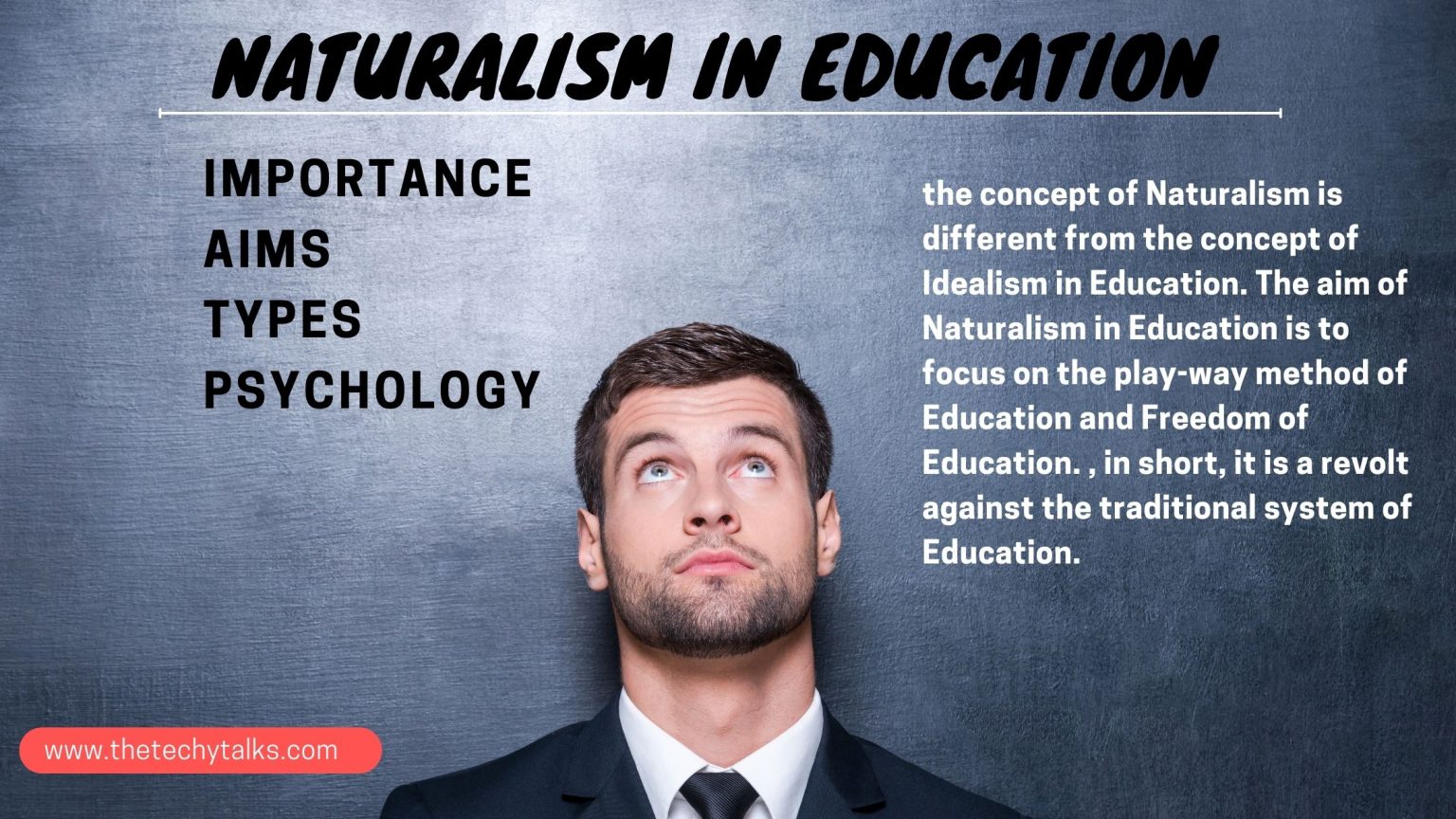
What is Naturalism in Education? | How is it different from Idealism?

Philosophy is indeed the mother of all sciences and arts, and that also includes Education; therefore, in Education, philosophy is necessary to understand the nature of Education. In the field of philosophy, Idealism and Naturalism are two branches that talk about self-enhancement and self-preservation. So what is Naturalism in Education? How is it different from Idealism? If you are curious about it, then read out this blog to understand in detail about Naturalism:
What is Naturalism in Education?
Naturalism is an approach to philosophy that focuses on highlighting the governance of the world with the help of natural forces. In this philosophical doctrine, the concern is with the real self for the natural self. That ultimate reality is the matter and not the mind or spirit. It is a philosophy that takes nature as the whole of reality. The real world is only the material and the physical world. In the 18th century, Naturalism education was developed; the objectives of the name of Education apart to explain and state the methods of Education, the agencies, and means of Education with the help of an explanation of human nature.
The concept of Naturalism in Education was based on Education as nature represents the whole of reality. After this philosophical concept, the stress is given to the studying nature of the child instead of focusing on the external restraints in Education and unnecessary formalities in Education. The concept condemns the use of textbooks, curricula, formal lessons, examinations, and classrooms, along with teachers with no important role to play.
What is the importance of Naturalism in Education?
Naturalism is a philosophical concept that is totally against the traditional system of Education, which doesn't allow much freedom for the child in the learning process. This is quite the opposite in Naturalism, as the central position and maximum freedom are given to the child. It focuses on the philosophy that the creation of natural conditions in which a child can develop naturally is important. The revival of Naturalism is usually seen whenever Education becomes stereotypical.
Naturalism education how is it different from Idealism:
Naturalism in Education is quite different from Idealism in Education as in the idealism philosophy; the social is on delivering that reality is mentally constructed in comparison to what truly exists. The stress is given to the mentally constructed version of reality instead of the real version. The focus is on values, beliefs, ideas, and concepts. On the other hand, Naturalism focuses on the existing reality that governs nature. It focuses on the material and also believes that the changes that take place in the world are the outcome of these natural forces.
Read also: why is educated unemployed a peculiar problem of india
Aims of Naturalism in Education:
Here are some of the aims concerning Naturalism in Education:
The focus on developing individuality: The aim is to make an individual capable of developing his own identity and thus contributing to society.
Achieving social progress: The focus is on accelerating the pace of evolution, resulting in social progress.
Education amines of present and future happiness: The aim is to achieve the happiness of the child in the present in future as natural impulsive leads to yield pleasure which will be lasting and permanent.
The Concept of Self-Expression: The aim of Education here is for self-expression and self-reservation, as for a man to live completely, a man must continue his own existence.
Apart from that, it also focuses on the production of the human-machine with perfection and efficiency, equipping the individual to struggle for his own survival and existence, enabling a child to live in peace and harmony with his surrounding with the art of adjustment in life, aiming at the natural development and autonomous development.
Types of Naturalism in Education:
Naturalism can be interpreted in different ways, and it has several forms. The three propounded forms of Naturalism are:
Biological Naturalism-
In this type of Naturalism, man is the lower form of life, and man has evolved from life.
Physical Naturalism-
Called the " manuscript of God" by Rabindranath Tagore, this type of Naturalism states that reality doesn't exist within the individual but exists in the natural universe.
Mechanical Naturalism-
In this type of naturalism concept, man is regarded only as a mere machine that has no spirit or soul. The matter is everything, and the mind is a method that is made up of empty space, atoms, and motion.
Nature of Educational Psychology:
Educational psychology directs the study of how people comprehend different methods of training, teaching, and instruction processes as well as individual differences in gaining knowledge and learning. It focuses on the social influences, behavioral, cognitive, and emotional influences of the overall process of learning.
Conclusion:
In conclusion, the concept of Naturalism is different from the concept of Idealism in Education. The aim of Naturalism in Education is to focus on the play-way method of Education and Freedom of Education. , in short, it is a revolt against the traditional system of Education.
Read also: What Was Einstein’s Idea of Education
FAQs:
Emile Zola proposed and formulated the concept of Naturalism. Bacon, Comenius, Herbert Spencer, Huxley, Bernard Shaw, Swami Vivekananda, and Rousseau were supporters of Naturalism in Education.
Naturalism is the concept in which the belief and the chief in is that Education is the fullest development of the child and the focus on self-expression.
The concept of knowledge in Education is about the information that the teacher in parts with the students, and the students are expected to learn the knowledge the information is given. The knowledge that is being imparted here is related to principles, theories, concepts, and facts. It focuses on the facts, information, and skills that a person needs require with the help of a systematic education system and experience. It refers to practical understanding, a critical understanding of a particular subject, and also familiarity and awareness that one gain by experience in a fact or situation.






















